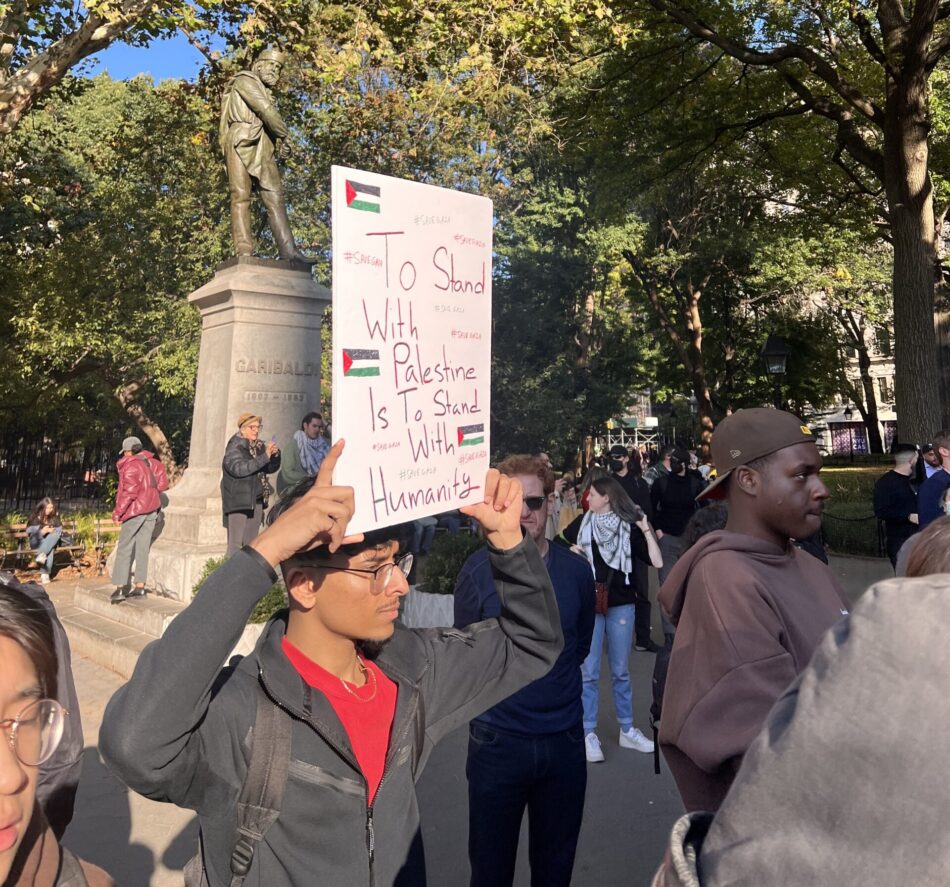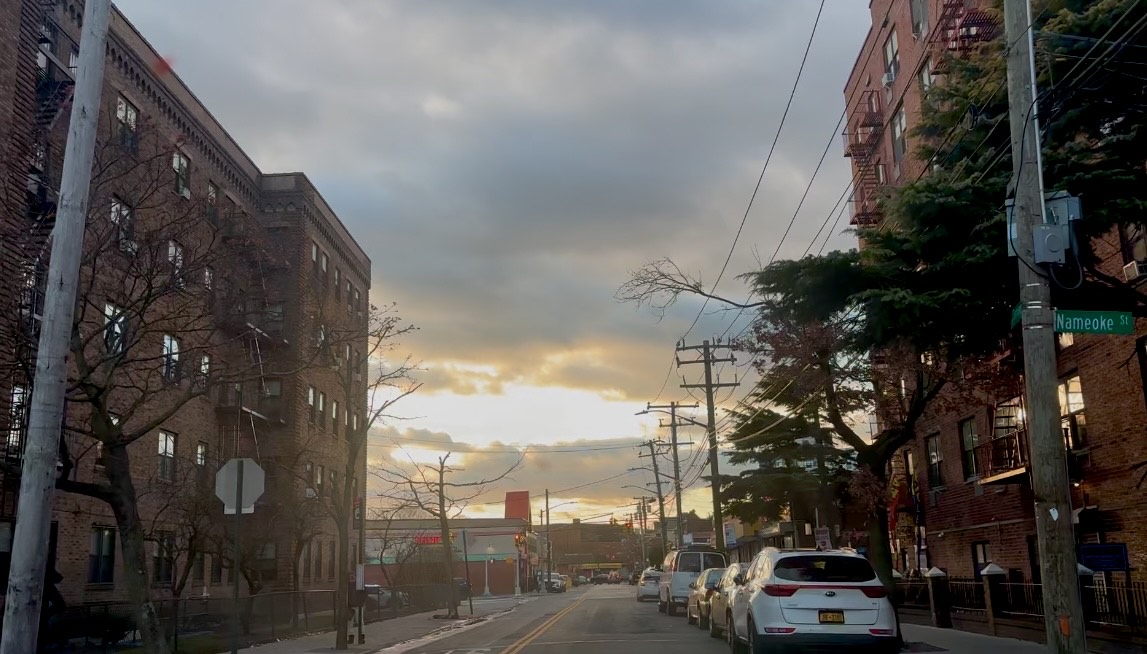In the hours following the announcement of a terrorist attack on Israel by the Hamas terrorist group, I pondered the question “Is this an appropriate moment to voice ‘Free Palestine’ when hundreds of Jews have just been tragically murdered?” The aftermath of this tragedy saw a surge in social media activity, inundating my feed with posts from individuals expressing their support for both Israelis and Palestinians.
During my undergraduate years at Syracuse University, I focused my studies on security and diplomacy in the Middle East. Given the intricate nature of this conflict, I understand how essential it is to possess a comprehensive understanding, and I wouldn’t feel adequately informed to offer an opinion on this topic despite conducting extensive research. So, why did others rush to express their views on something that demands considerable research and historical context?
In this digital age, there’s a growing demand for individuals to utilize their social media platforms as a means to engage with political issues and social injustices. Whether it involves reposting an Instagram reel or quote-tweeting a statement made by a politician, the role of social media in expressing opinions on political and social justice matters has become increasingly prominent in recent years.
“For me, social media serves as my initial source for staying informed about many newsworthy issues” says twenty-three year old Allison McGrath. “The way I access news has evolved significantly with the advent of platforms like TikTok and Twitter. I now consider these platforms my primary sources for gaining a surface-level understanding of complex issues, like the Israel-Palestine conflict.”
According to a study conducted by the Pew Research Center on Americans’ views of and experiences with activism on social media, 34 percent of Americans surveyed said that they have taken part in a group that shares an interest in an issue or cause, and 26 percent say they have encouraged others to take action on social media in the past year. 14 percent have changed their profile picture on social media to support a cause, and 12 percent have used hashtags related to a political or social issue.
This form of social media activism gained prominence in 2020 during the Black Lives Matter movement. The same survey conducted by the Pew Research Center found that “About four-in-ten Americans who view police violence against Black people as a problem (43 percent) say social media is an extremely or very effective way to bring attention to the issue.”
Despite the apparent support for using social media as a platform to address police violence against Black people, celebrities and other prominent figures often faced criticism for their silence on the issue, and were simultaneously accused of being “performative” if they chose to speak out.
“If you have an audience, I would say it’s important to share your point of view, but it also shouldn’t define you,” explained Silvia Forcina. “ Let’s say if you don’t speak out on something, you shouldn’t be bashed by the internet because of it.”
In response to the initial terrorist attack on Israel, I saw several individuals expressing support for Palestine, framing it as a rebellion against years of oppression by the Israeli government and forces. However, many of these posts were deleted after facing backlash because the attack was carried out by a terrorist group and had little to do with the ordinary people of Palestine, who are not associated with Hamas.
Similarly, I observed people declaring their support for the state of Israel in the midst of this conflict. Notably, actress Jamie Lee Curtis inadvertently shared a photo of Palestinian children fleeing from bombs while intending to voice her support for Israel, mistakenly believing the photo depicted Israeli children. Curtis, who boasts an Instagram following of 5.5 million users, promptly deleted the post upon realizing her error.
The potential backfire from responding quickly is not limited to ordinary individuals and celebrities.
A collection of campus organizations at Harvard faced substantial backlash for endorsing a statement by the Harvard Undergraduate Palestinian Solidarity Committee, which held Israel “entirely responsible” for the ongoing violence.
On Oct. 10, Act on a Dream, one of the signatories, acknowledged that their endorsement resulted from miscommunication and insufficient diligence in sharing the statement with the entire board. Since the statement’s release, these groups, including Act on a Dream, have endured significant criticism, doxxing, and harassment. They subsequently retracted their support for the statement. Could all of this have been prevented if they had taken more time for consideration and conducted thorough research before publicly taking a stance?
In another instance, the president of the New York University Student Bar Association had a job offer withdrawn by a top law firm and was removed from her role as president due to a statement she made, attributing “full responsibility” to Israel for the significant loss of life resulting from the Hamas attacks that claimed over 1,000 Israeli lives.
This rapid rise of social media activism and the push for individuals to use their platform to speak out on such issues begs the question: Instead of encouraging hasty responses to such matters, should we prioritize promoting research, news literacy, and historical understanding?
“Social media is a useful tool, but it can also be very dangerous,” cautioned Rahul, a Columbia University student who prefers to remain anonymous, fearing potential repercussions from fellow students and organizations when discussing matters related to the Israel-Palestine conflict. “There is so much misinformation going around that can be really harmful, like people are getting hurt and attacked and killed over misinformation. So you have to use it responsibly.”
Columbia graduate student Janet Gu explained that most of the posts she has seen on social media are “not really taking a side on the conflict, but more so pointing to the shared humanity of the people in Palestine and Israel. They both have suffered and it’s kind of like separating the experiences of the people affected with the government entities that have control over their lives.”
Gu explained that she believes in the importance of social media activism, stating that “for those who have a social media platform, they need to make their voice heard because just by engaging in these conversations, people can really reflect on their experiences and what they can do to help”.
Sharing a similar belief, Ada Kyrialli emphasized the importance of speaking out, explaining that “despite what your views are, just speak out and say what you think. People can either agree or argue against it, but it gets a conversation going. Those conversations are important so definitely speak out if you have something to say.”
“I think if you’re sharing an experience, that’s fine if it’s an honest and truthful experience because everyone deserves to learn,” said Columbia student LJ Huang. “But then if you’re outright just speaking and not taking other people’s experience into consideration, then that’s where the line is drawn.”
I firmly believe that it’s essential to be well-informed before taking firm stances, and accuracy should take precedence over timeliness. Rushing to be the first to comment on a topic, without investing the time to educate oneself, can result in significant repercussions and contribute to the propagation of misinformation overall.

